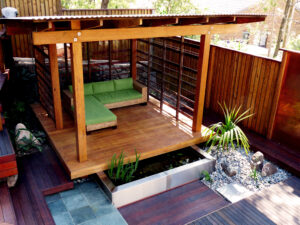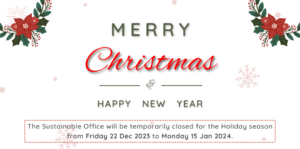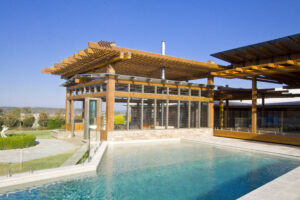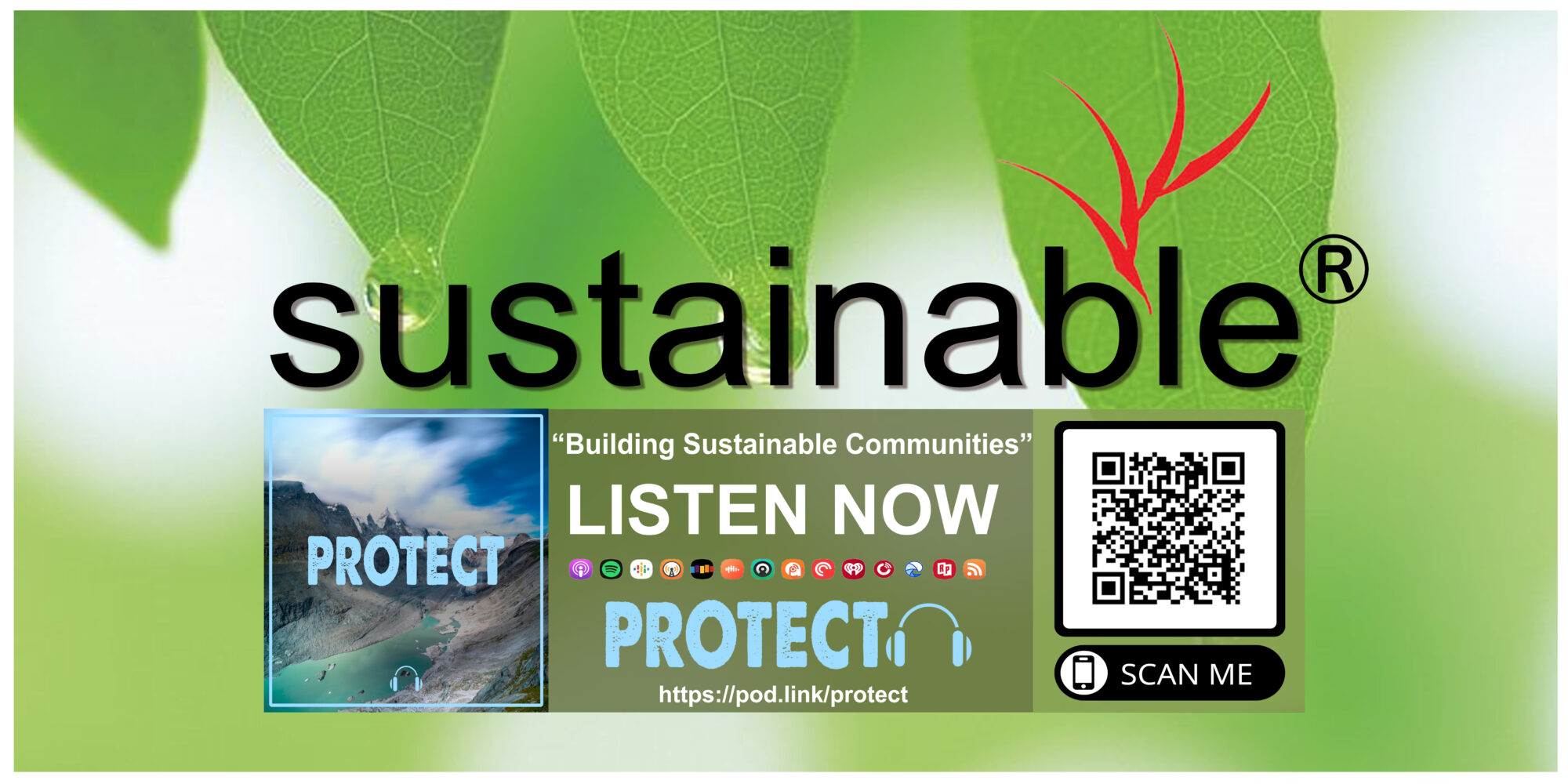Samsonvale designed house and winner of the GreenSmart Energy Efficient House of the Year at the Brisbane HIA CSR Awards.
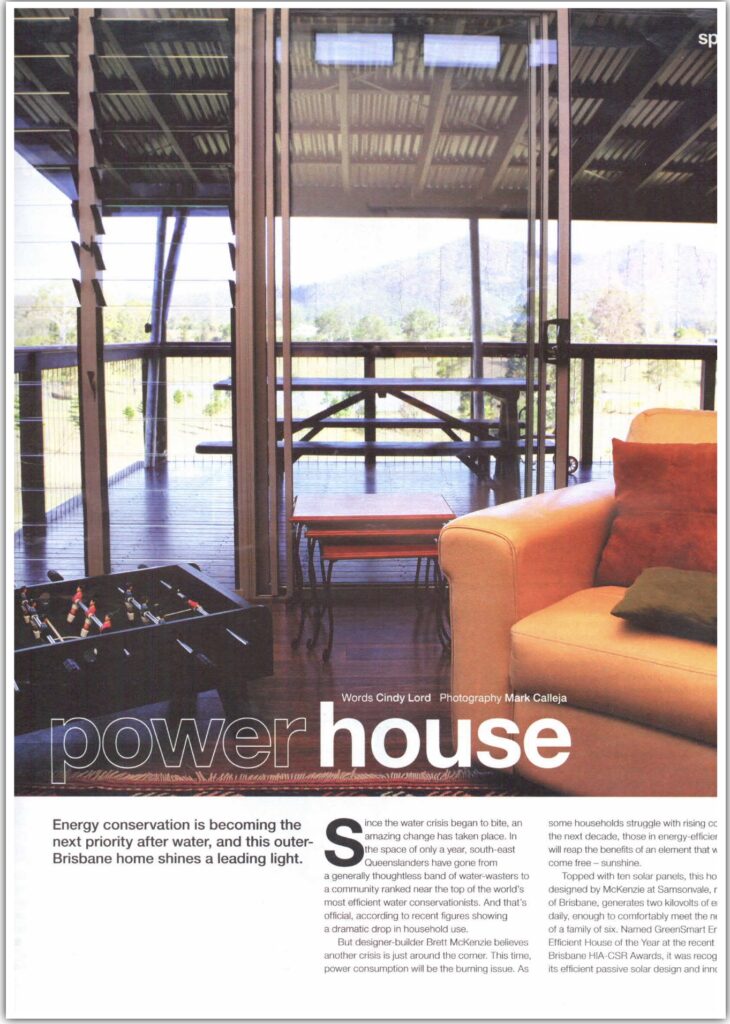
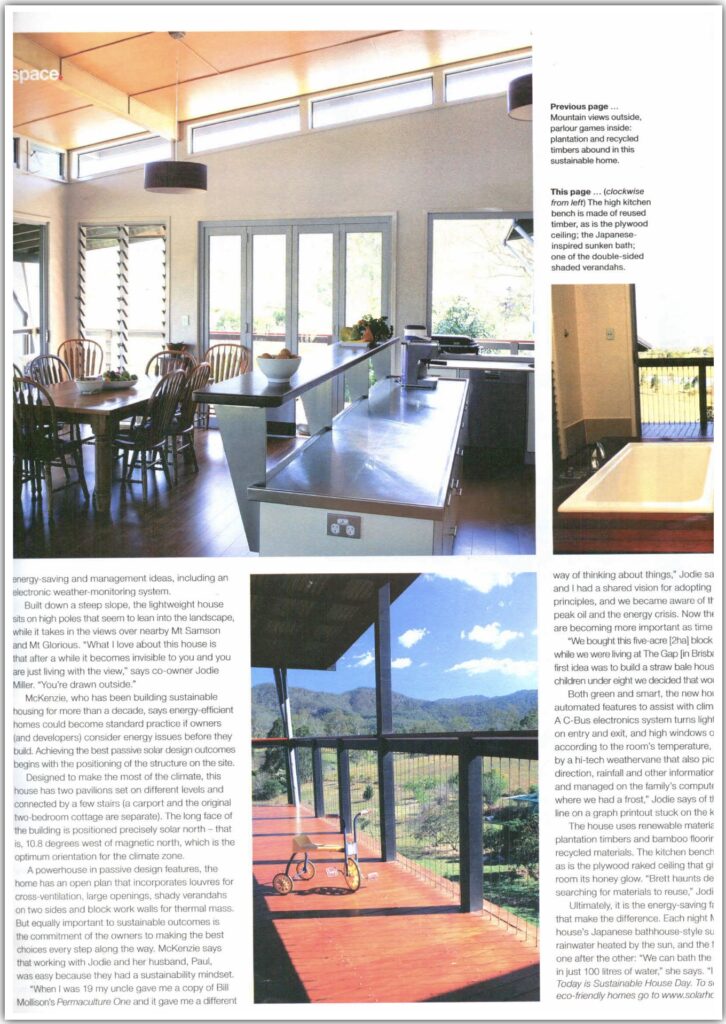
Text Translation
Energy conservation is becoming the next priority after water, and the outer-Brisbane home shines a leading light.
Since the water crisis began to bite, an amazing change has taken place. In the space of only a year, south-east Queenslanders have gone from a generally thoughtless band of water-wasters to a community ranked near the top of the world’s most efficient water conservationists. And that’s official, according to recent figures showing a dramatic drop in household use.
But designer builder Brett McKenzie believes another crisis is just around the corner. This time, power consumption will be the burning issue. As some households struggle with rising costs in the next decade, those in energy efficient homes will reap the benefits of an element that will always come free — sunshine.
Topped with ten solar panels, this home designed by McKenzie at Samsonvale, north of Brisbane, generates two kilovolt of electricity daily, enough to comfortably meet the needs of a family of six. Named GreenSmart Energy Efficient House of the Year at the recent Brisbane HIA CSR Awards, it was recognised for its efficient passive design and innovation in energy saving and management ideas, including an electronic weather-monitoring system.
Built down a steep slope, the lightweight house sits on high poles that seem to lean into the landscape, while it takes in the views over nearby Mt Samson and Mt Glorious. “What I love about this house is that after a while it becomes invisible to you and you are just living with the view,” says co-owner Jodie Miller. “You’re drawn outside.”
McKenzie, who has been building sustainable housing for more than a decade, says energy-efficient homes could become standard practice if owners (and developers) consider energy issues before they build. Achieving the best passive solar design outcomes begins with the positioning of the structure on the site.
Designed to make the most of the climate, this house has two pavilions set on different levels and connected by a few stairs (a carport and the original two-bedroom cottage are separate). The long face of the building is positioned precisely solar north — that is, 10.8 degrees west of magnetic north, which is the optimum orientation for the climate zone.
A powerhouse in passive design features, the home has an open plan that incorporates louvres for cross-ventilation, large openings, shady verandas on two sides and block work walls for thermal mass. But equally important to sustainable outcomes is the commitment of the owners to making the best choices every step along the way. McKenzie says that working with Jodie and her husband, Paul, was easy because they has a sustainability mindset.
“When I was 19 my uncle gave me a copy of Bill Mollison’s Permaculture One and it gave me a different way of thinking about things,” Jodie said. Paul and I had a shared vision for adopting sustainable principles, and we became aware of the peak oil and the energy crisis. Now these passive notions are becoming more important as time goes on.
“We bought this five-acre [2ha] block while we were living at The Gap [in Brisbane]. Our first idea was to build a straw bale house, but with children under eight we decided that wouldn’t be ideal.”
“Both green and smart, the new home has automated features to assist with climate change. A C-Bus electronic system turns lights on and off on entry and exit, and high windows open and close according to the room’s temperature, by a hi-tech weathervane that also picks up on wind direction, rainfall and other information shown and managed on the family’s computer.
The house uses renewable materials such as plantation timber’s and bamboo flooring from recycled materials. The kitchen bench is recycled and polished, as is the plywood raked ceiling that gives the room its honey glow. “Brett haunts developers searching for materials to reuse,” Jodi said.
Ultimately it is the energy-saving factor of the home that makes the difference.
Give Sustainable a call NOW on (07) 3201 1177 to talk to your highly awarded experts in sustainable home design and construction and start planning your new sustainable home today!


